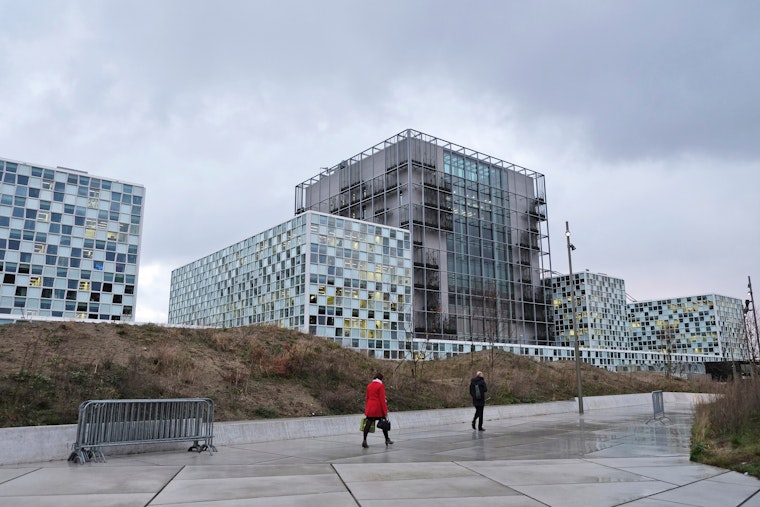Excellence, not Politics, should Choose the Judges at the ICC
By Yassir Al-Khudayri and Christian De Vos

The International Criminal Court (ICC) has plenty of political opponents and critics—starting with three out of the five permanent members of the UN Security Council. Navigating the challenges of international politics was never going to be easy for an institution devoted to the highest ideals of international justice. Yet, regrettably and despite some successes, the shortcomings of the court’s overall performance have led even its most enthusiastic supporters to call for reform in the way it constructs and pursues its cases.
The court’s members, represented by the Assembly of States Parties, are now engaged in what amounts to a major rethink that provides an opportunity to address the issues that its members can control—such as flawed investigations, and shortcomings in governance, including in the way the court selects its judges.
The ICC’s requirements and procedures for judicial appointments are perhaps among the most well-established of their kind in an international setting. The court’s founding treaty—the Rome Statute—lays out competency-based and language requirements for prospective judges.
Candidates are first nominated by a member country of the ICC, and are then assessed by an advisory committee, which interviews and reports on each judicial candidates’ qualifications. Nominees are then voted on by the Assembly of States Parties, which is guided by complex minimum voting requirements to ensure equitable gender and geographical representation.
Notably, the ICC is the only international judiciary to have had a majority of its bench composed by women. This is in sharp contrast with the International Court of Justice, which recently achieved its most balanced gender composition to date: three of its 15 judges are women.
Yet this legal framework is substantially hindered by political considerations arising during member countries’ nominations, and spilling into the election process. Nominations and elections of judicial candidates often overlook merit-based considerations in favor of political interests.
A new report by the Open Society Justice Initiative, Raising the Bar: Improving the Nomination and Selection of Judges at the International Criminal Court, sheds light on the problem. It also recommends a way forward, drawing on a combination of desk-based research and primary source interviews with current or former ICC judges, ICC staff, representatives of government ministries or diplomatic delegations, advisory committee members and international civil society.
We found that in some cases a country may nominate a candidate simply due to a nominee’s political connections, amidst processes that are either non-existent, or that occur entirely behind closed doors. Some candidates—with the support of their nominating countries—carry out expensive and time-consuming campaigns to promote their election. This goes hand-in-hand with a toxic practice of vote-trading between countries, which further damages the procedure’s integrity.
This political aspect of the ICC’s judicial elections, added to the costs involved in campaigning, discourages many qualified individuals from running and many states from putting forward candidates. The advisory committee, with its limited mandate, timeline and working methods, does little to mitigate the effects of negative campaigning and vote-trading.
Raising the Bar puts forward specific recommendations for what needs to be done, including:
1. Member countries should publish a set of fixed rules for nominating judges to the ICC. These rules should include a transparent and fair process for shortlisting, interviewing and selecting candidates.
Many states only appoint individuals belonging to elite social and political circles.
2. Member countries should also ensure a selection body that is independent from the government conducts their national selection procedures.
This assessment body should include members of the judiciary, legal profession, and civil society. The body should be empowered to rigorously scrutinize applicants’ competencies, by conducting interviews with selected candidates.
3. Countries should abstain from nominating candidates who have served as a government official, including as a diplomat, for at least the last five years preceding the nomination.
This excludes candidates who have served is a judicial or prosecutorial capacity. Similarly, states should ensure that qualified candidates who may lack political connections stand an equal chance of being nominated.
4. States must elect candidates based strictly on merit and refrain from engaging in vote trading for ICC judicial elections.
Negative campaigning and vote-trading increase the chances of electing unqualified judicial candidates.
5. States should review the role and mandate of the Advisory Committee.
The Advisory Committee should conduct a more rigorous assessment of candidates and develop a framework that clearly communicates candidates’ competences for judicial service.
The selection of judges is just one of the issues facing the ICC. But it is vitally important. An independent judiciary is a pillar of the rule of law, and the process upon which judges are elected is essential to securing that independence. In all credible judicial systems, a judge’s role requires independence and integrity. This should be no different at the ICC.